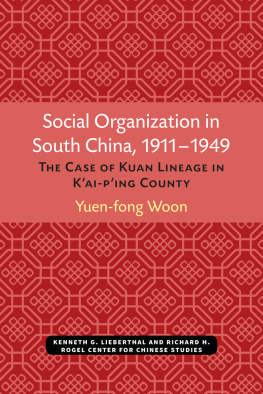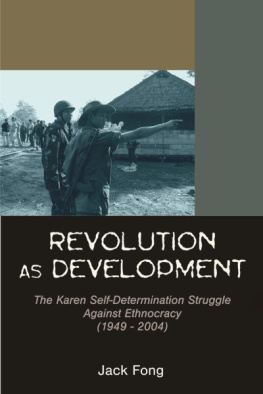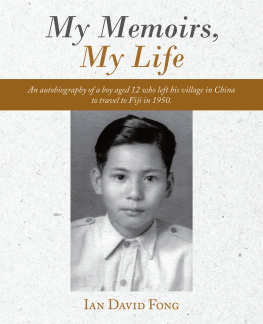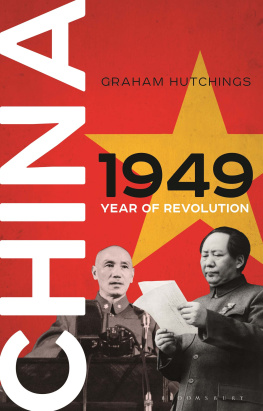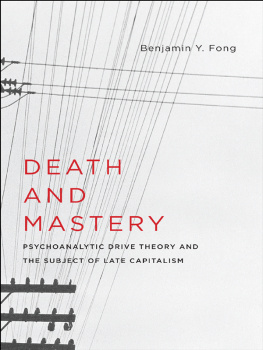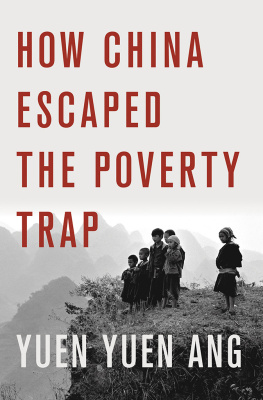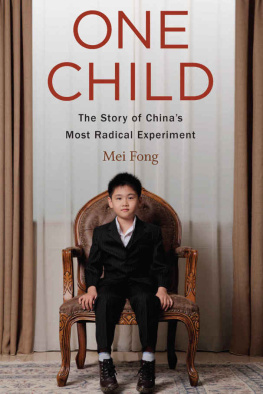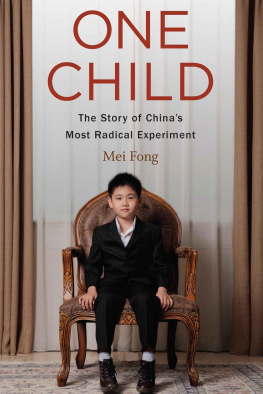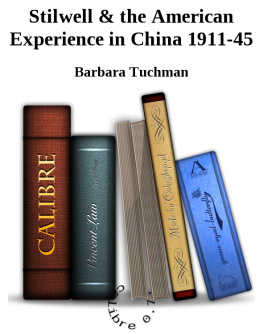Yuen-fong Woon - Social Organization in South China, 1911-1949
Here you can read online Yuen-fong Woon - Social Organization in South China, 1911-1949 full text of the book (entire story) in english for free. Download pdf and epub, get meaning, cover and reviews about this ebook. year: 1984, publisher: Kenneth G. Lieberthal and Richard H. Rogel Center for Chinese Studies, genre: Politics. Description of the work, (preface) as well as reviews are available. Best literature library LitArk.com created for fans of good reading and offers a wide selection of genres:
Romance novel
Science fiction
Adventure
Detective
Science
History
Home and family
Prose
Art
Politics
Computer
Non-fiction
Religion
Business
Children
Humor
Choose a favorite category and find really read worthwhile books. Enjoy immersion in the world of imagination, feel the emotions of the characters or learn something new for yourself, make an fascinating discovery.
- Book:Social Organization in South China, 1911-1949
- Author:
- Publisher:Kenneth G. Lieberthal and Richard H. Rogel Center for Chinese Studies
- Genre:
- Year:1984
- Rating:5 / 5
- Favourites:Add to favourites
- Your mark:
- 100
- 1
- 2
- 3
- 4
- 5
Social Organization in South China, 1911-1949: summary, description and annotation
We offer to read an annotation, description, summary or preface (depends on what the author of the book "Social Organization in South China, 1911-1949" wrote himself). If you haven't found the necessary information about the book — write in the comments, we will try to find it.
Social Organization in South China, 1911-1949 — read online for free the complete book (whole text) full work
Below is the text of the book, divided by pages. System saving the place of the last page read, allows you to conveniently read the book "Social Organization in South China, 1911-1949" online for free, without having to search again every time where you left off. Put a bookmark, and you can go to the page where you finished reading at any time.
Font size:
Interval:
Bookmark:

THE UNIVERSITY OF MICHIGAN
CENTER FOR CHINESE STUDIES
MICHIGAN MONOGRAPHS IN CHINESE STUDIES
NO. 48
The Case of the Kuan Lineage in Kai-ping County
by
Yuen-fong Woon
Ann Arbor
Center for Chinese Studies
The University of Michigan
1984
Open access edition funded by the National Endowment for the Humanities / Andrew W. Mellon Foundation Humanities Open Book Program
Copyright 1984
by
Center for Chinese Studies
The University of Michigan
Library of Congress Cataloging in Publication Data
Woon, Yuen-fong, 1943
(Michigan monographs in Chinese studies; no. 48)
Bibliography; p.
1. Kai-ping hsien (Kwangtung Province, ChinaSocial conditions. 2. Social organizationChinaKai-ping hsien (Kwangtung Province)Case studies. 3. Social classesChinaKai-ping hsien (Kwangtung Province)Case studies. 4. KinshipChinaKai-ping hsien (Kwangtung Province)Case studies. 5. Kuan family.
I. Title. II. Series.
HN740.K35W66 1984 305.095127 84-3164
ISBN 0-89264-051-0
ISBN 0-89264-048-0 (pbk.)
Cover design by Carrie L. DiLorenzo
Printed in the United States of America
ISBN 978-0-89264-051-5 (hardcover)
ISBN 978-0-89264-048-5 (paper)
ISBN 978-0-472-12823-5 (ebook)
ISBN 978-0-472-90223-1 (open access)
The text of this book is licensed under a Creative Commons Attribution-NonCommercial-NoDerivatives 4.0 International License: https://creativecommons.org/licenses/by-nc-nd/4.0/
Bridging the collapse of the Confucian state and the establishment of the Peoples Republic of China, the period 1911-49 is particularly fascinating to historians, anthropologists, sociologists and political scientists. Unfortunately, it is also a very confusing period, full of shifts and changes in economic, social, and political organizations. The social implications of these changes, and the relationships between officials on the subdistrict level, the unofficial leaders, and the bulk of the peasantry remain inadequately known. South China, which nurtured the Communist Party in its formative years, is a particularly interesting case. In this study I use the Kuan lineage of Kai-ping as a case study to show the effects of demographic, economic, administrative, and educational changes after the Treaty of Nanking (1842) on patrilineal kinship as a principle of social organization in South China.
Since Freedman (1958, 1966) published his two monographs on lineage and society in South China, there has been a growing body of literature on localized lineages. However, most of the fieldwork was done either in the New Territories of Hong Kong (Baker, 1968; Brim, 1969; Hayes, 1964; Johnson, 1971; Nelson, 1969; Potter, 1968; Pratt, 1960; Watson, 1975) or in Taiwan (Gallin, 1966; Pasternak, 1968). Studies done on South Chinese villages on the mainland (e.g., H. S. Chen, 1936; T. Chen, 1940; Kulp, 1925; H. T. Liu, 1936; Makino, 1948; Ssu-tu, 1951; C. K. Yang, 1959) lack historical depth. None of them set village life in a wider social or political context, nor have they dealt in great detail with the effect on lineages of social change during the critical period from 1911 to 1949. Information on the lineage during this period is now available only through interviews with informants who were alive at the time. In this book I shall try to reconstruct a segment of prerevolutionary Chinese society, to map out the ethnographic profile and historical development of the Kuan lineage under the impact of rapid social change, and to construct, as systematically as my data allow, some generalizations about social organization and change in this part of China.
In recent years there has appeared a growing body of literature that attempts to explain the causes of development of underdevelopment in Third World countries. Scholars have provided conflicting theories to account for rural impoverishment and class conflict in China between 1911 and 1949 in an attempt to understand (and sometimes consciously or unconsciously to blame or justify) the rise of the Peoples Republic of China. It is hoped that the case of the Kuan lineage of Kai-ping County can throw light on the validity of these theories as they apply to South China in general and to emigrant communities in particular.
The Kuan lineage was one of the most important emigrant communities in Kai-ping County, one that sent thousands of sons to North America between the 1860s and 1923. This enthnography also examines the relationship between Overseas Chinese in North America and their home communities in South China and the implications of North American public policies such as the Oriental Exclusion Act for that relationship. For example, immigration policies resulted in certain donation and investment patterns among the Overseas Chinese, patterns which, in turn, contributed to the economic modernization of market towns in China and the preservation of the Confucian mode of social organization in the form of lineages in rural areas. It is hoped that this study will make a contribution not only to the study of emigrant communities in South China but to ethnic studies in North America.
In a study based mainly on the limited power of informants memories, extraordinary care had to be taken to ensure validity and reliability. A detailed description of the methodology employed is found in appendix 5. This book is a revised and updated version of a Ph.D. dissertation of the same title, submitted to the Department of Anthropology/Sociology, University of British Columbia, in the summer of 1975. It is the result of a nine-month period of in-depth interviews with sixteen people who had direct knowledge of the Kuan lineage. In the course of this study I have been assisted by many people whose contributions have been invaluable. Only a few names can be mentioned here.
First, I would like to thank Dr. Graham E. Johnson, chair of the dissertation committee, whose continued interest and intellectual stimulation have carried me through the research project, the writing of the dissertation, and subsequent revisions of the work. I am greatly indebted to Dr. E. Wickberg whose comments on the dissertation widened my intellectual horizons. Profound gratitude must be expressed to Professor W. E. Willmott, my former teacher at U.B.C., who, as a visiting scholar to the Centre for Pacific and Oriental Studies in the spring of 1980, re-read my manuscript and suggested invaluable modifications to the structure of the first draft of this present version. Dr. J. L. Watson, the external examiner, made detailed comments on the dissertation and provided encouragement and important guidelines that allowed the thesis to be revised into publishable form. Dr. Y. T. Lai read the first draft of the revised version in great detail and provided valuable insights and the perspective of an intelligent outside reader. To her and to Dr. Watson, I express my heartfelt thanks.
In addition to the above individuals, I also owe an intellectual debt to the anonymous readers who, at the request of the Social Science Federation of Canada, the U.B.C. Press, and the Center for Chinese Studies of the University of Michigan, labored through the manuscript and provided the invaluable comments and constructive criticism which widened the theoretical perspective and sharpened the focus of my study.
Thanks also go to all the Kuan in Victoria and Vancouver, especially Mr. F. F. Kuan and Mr. Y. F. Kuan, without whose cooperation and patience this book would not exist. I must thank Mr. T. H. Lee, Mr. C. Chen, Mr. S. Y. Lau, and Dr. Charles Sedgewick for introducing these members of the Kuan lineage to me.
Font size:
Interval:
Bookmark:
Similar books «Social Organization in South China, 1911-1949»
Look at similar books to Social Organization in South China, 1911-1949. We have selected literature similar in name and meaning in the hope of providing readers with more options to find new, interesting, not yet read works.
Discussion, reviews of the book Social Organization in South China, 1911-1949 and just readers' own opinions. Leave your comments, write what you think about the work, its meaning or the main characters. Specify what exactly you liked and what you didn't like, and why you think so.

